Medicine For Typhoid Fever in India
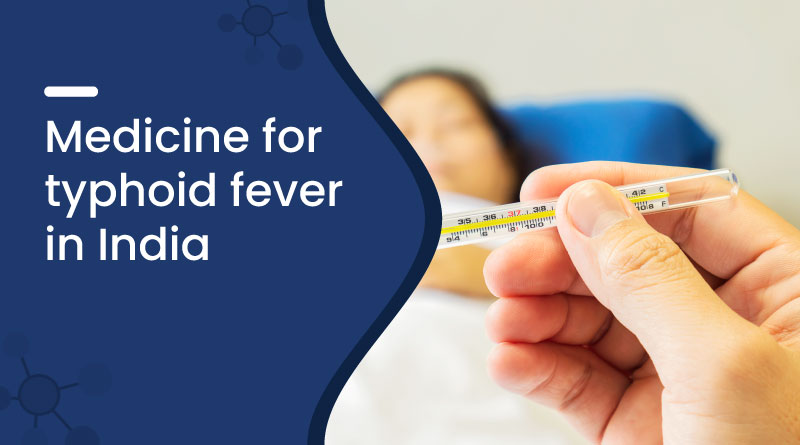

Typhoid fever is a serious bacterial infection caused by Salmonella typhi. It spreads through contaminated food, water, and poor sanitation. If not treated on time, it can lead to severe complications. Proper medication helps in quick recovery and prevents the spread of infection.
What is Typhoid Fever?
Typhoid fever is a bacterial infection that affects the intestines and bloodstream. It is common in areas with poor hygiene and unclean drinking water.
How Does Typhoid Spread?
- Eating contaminated food or drinking infected water
- Poor hand hygiene after using the toilet
- Close contact with an infected person
Symptoms of Typhoid Fever
The symptoms usually appear 1-3 weeks after exposure to the bacteria. They include:
- High fever (up to 104°)
- Weakness and fatigue
- Abdominal pain
- Loss of appetite
- Constipation or diarrhea
- Headache
- Skin rashes (rose-colored spots)
- Swollen stomach in severe cases
If you experience these symptoms, seek medical help immediately.
List of Generic Medicines for Typhoid Fever in India
| Generic Medicine | Use |
|---|---|
| Ciprofloxacin | Used to kill Salmonella typhi bacteria and treat typhoid fever effectively. |
| Azithromycin | Prescribed when Ciprofloxacin resistance is suspected; helps reduce symptoms and bacterial load. |
| Ceftriaxone | A broad-spectrum antibiotic used in severe typhoid cases, usually given via injection. |
| Ofloxacin | Effective against drug-resistant strains of Salmonella typhi and used for faster recovery. |
| Levofloxacin | Helps treat typhoid fever by stopping bacterial growth and preventing complications. |
| Amoxicillin | Sometimes used for mild cases but less effective due to antibiotic resistance. |
| Chloramphenicol | One of the oldest antibiotics for typhoid fever but rarely used now due to resistance. |
| Trimethoprim-Sulfamethoxazole (Co-trimoxazole) | Used in certain cases when first-line antibiotics are not suitable. |
Medicines for Typhoid Fever
Typhoid fever is a bacterial infection caused by Salmonella Typhi. Proper treatment requires antibiotics that target and kill the bacteria. Below is a list of commonly prescribed medicines for typhoid, including their uses, working mechanism, and effectiveness in different cases of typhoid fever medication.
Ciprofloxacin
Ciprofloxacin is a fluoroquinolone antibiotic that treats gastrointestinal infections, including typhoid. It works by blocking bacterial DNA replication, thereby killing the bacteria. This typhoid medicine is widely prescribed due to its effectiveness and quick results, especially in adults, but must be used cautiously in resistant cases.
Azithromycin
Azithromycin is a macrolide antibiotic often preferred for typhoid fever. It stops bacterial growth and offers the convenience of once-daily dosing. This typhoid medicine name is especially useful in patients who cannot tolerate fluoroquinolones, and it is effective in areas with growing antibiotic resistance.
Ceftriaxone
Ceftriaxone is a third-generation cephalosporin administered through injection in hospital settings. It is highly effective against severe infections, including typhoid. Often used for typhoid treatment, it provides reliable results for patients unable to take oral antibiotics or those experiencing complications.
Ofloxacin
Ofloxacin, another fluoroquinolone antibiotic, is used for gastrointestinal and urinary infections. It prevents bacterial DNA synthesis, making it a reliable typhoid treatment medicine. Ofloxacin is commonly prescribed where resistance is less prevalent and provides fast relief from fever, diarrhea, and abdominal discomfort associated with typhoid fever.
Levofloxacin
Levofloxacin is a powerful fluoroquinolone antibiotic often recommended for complicated bacterial infections. It is considered one of the best antibiotic for typhoid when other treatments fail. By stopping bacterial growth, it helps restore health and prevent relapse, particularly in resistant strains of Salmonella Typhi.
Amoxicillin
Amoxicillin is a penicillin-type antibiotic commonly prescribed for respiratory and gastrointestinal infections. In typhoid cases, it is useful where fluoroquinolone resistance occurs. This typhoid medicine is safe for both children and adults and offers effective bacterial clearance with fewer side effects, making it a trusted choice for many doctors.
Chloramphenicol
Chloramphenicol is an older broad-spectrum antibiotic once widely used for typhoid fever. While effective, it carries risks of bone marrow suppression, so it is prescribed cautiously. It remains an alternative typhoid treatment medicine in specific cases, particularly when modern drugs are ineffective or unavailable.
Trimethoprim-Sulfamethoxazole (Co-trimoxazole)
Co-trimoxazole, a combination of trimethoprim and sulfamethoxazole, is effective against gastrointestinal infections, including typhoid fever. Its dual mechanism blocks bacterial metabolism at two stages, ensuring effective bacterial elimination. This typhoid medicine name is especially used when patients show resistance to other antibiotics or need an affordable alternative.
Common Medications for Typhoid Fever in India
The most commonly prescribed medications are:
| Medicine Name | Composition |
|---|---|
| Sefjim-OX Antibacterial Tab | Cefixime 200 mg + Ofloxacin 200 mg |
| Zithrozem-250 Antibiotic Tab | Azithromycin 250 mg |
| Zithrozem-500 Antibiotic Tab | Azithromycin 500 mg |
| Amoxible-500 Antibiotic Cap | Amoxycillin 500 mg |
| Amoxible-250 Antibiotic Cap | Amoxycillin 250 mg |
| Ampicix-500 Antibiotic Cap | Ampicillin 500 mg |
Best Antibiotic for Typhoid
1. Sefjim OX Antibacterial Tablet
Sefjim-OX contains Cefixime (200mg) + Ofloxacin (200mg). Cefixime blocks bacterial cell wall formation, while Ofloxacin prevents bacterial DNA replication. This dual action makes it highly effective as a tablet for typhoid, especially for patients with respiratory, urinary, ENT, and typhoid infections.
- Salt Composition: Cefixime (200mg) + Ofloxacin (200mg)
- What they do: Cefixime stops bacterial cell wall formation, while Ofloxacin prevents bacterial DNA replication. Together, they kill and stop bacterial growth.
- Best for: Patients with respiratory tract infections, urinary tract infections, ear/nose/throat infections, and typhoid fever.
2. Zithrozem 250 Antibiotic Tablet
Zithrozem-250 contains Azithromycin (250mg), which stops bacterial protein synthesis. This typhoid tablet name is best suited for patients with throat infections, pneumonia, skin infections, and certain sexually transmitted diseases. It is often recommended for its convenient once-daily dosing.
- Salt Composition: Azithromycin (250mg)
- What they do: Stops bacterial protein synthesis, preventing growth and spread of bacteria.
- Best for: Patients with throat infections, pneumonia, skin infections, or certain sexually transmitted diseases.
3. Zithrozem 500 Antibiotic Tablet
Zithrozem-500 contains Azithromycin (500mg). It inhibits bacterial protein synthesis, reducing infection and inflammation. This medicine is highly effective in chest infections, severe sinusitis, tonsillitis, and sexually transmitted diseases. It is also used as a reliable tifaid fever medicine.
- Salt Composition: Azithromycin (500mg)
- What they do: Inhibits bacterial protein synthesis, reducing infection and inflammation.
- Best for: Patients with chest infections, severe tonsillitis, sinusitis, or sexually transmitted infections.
Best Medicine for Typhoid Fever
1. Amoxible 500 Antibiotic Capsule
Amoxible-500 contains Amoxycillin (500mg), which destroys bacterial cell walls. It is prescribed for chest, urinary, skin, and ENT infections. This capsule is often considered best for typhoid in child and adults due to its safety and effectiveness.
- Salt Composition: Amoxycillin (500mg)
- What they do: Destroys bacterial cell walls, killing infection-causing bacteria.
- Best for: Patients with chest infections, urinary tract infections, skin infections, and ear/nose/throat infections.
2. Amoxible 250 Antibiotic Capsule
Amoxible-250 contains Amoxycillin (250mg). It prevents bacterial growth by damaging the bacterial cell wall. This antibiotic is useful in mild infections like sore throat, ear infections, bronchitis, and urinary tract infections. It is also prescribed as a tifaid fever medicine for children and adults with less severe cases.
- Salt Composition: Amoxycillin (250mg)
- What they do: Prevents bacterial growth by damaging the bacterial cell wall.
- Best for: Patients with sore throat, middle ear infections, bronchitis, and urinary infections.
3. Ampicix 500 Antibiotic Capsule
Ampicix-500 contains Ampicillin (500mg), which kills bacteria by interfering with cell wall formation. It is highly effective against respiratory infections, meningitis, urinary infections, and gastrointestinal infections. Doctors often recommend this tablet for typhoid in resistant or complicated cases.
- Salt Composition: Ampicillin (500mg)
- What they do: Kills and prevents growth of bacteria by interfering with bacterial cell wall formation.
- Best for: Patients with respiratory infections, meningitis, urinary tract infections, and gastrointestinal infections.
How These Medications Work
These antibiotics attack the typhoid bacteria by stopping their growth and preventing them from multiplying. This helps in reducing symptoms and recovering faster.
Without proper treatment, typhoid bacteria can spread to different organs and cause life-threatening complications like intestinal perforation, internal bleeding, and organ failure.
Dosage and Usage Instructions
- Always take antibiotics exactly as prescribed by your doctor.
- Complete the full course even if you start feeling better.
- Drink plenty of fluids to stay hydrated.
- Avoid self-medication, as improper use of antibiotics can lead to drug resistance.
Precautions and Side Effects
Precautions While Taking Typhoid Medicine
- Avoid spicy, oily, and heavy foods as they can irritate the stomach.
- Drink boiled or purified water to prevent reinfection.
- Wash your hands frequently, especially before eating.
- Take medicines with food if they cause stomach discomfort.
Possible Side Effects of Typhoid Medications
Like all medicines, antibiotics for typhoid can cause side effects. Some common side effects include:
- Nausea and vomiting
- Diarrhea
- Stomach pain
- Headache
- Skin rashes or allergic reactions (in rare cases)
If you experience severe side effects like difficulty breathing, swelling of the face, or extreme weakness, seek medical help immediately.
Frequently Asked Questions (FAQs)
Q: How long does typhoid fever last?
A: With proper treatment, typhoid fever usually lasts 7-10 days. Without treatment, it can last for 3-4 weeks and become dangerous.
Q: Can typhoid come back after treatment?
A: Yes, if the bacteria are not completely eliminated or if you drink contaminated water again, you can get typhoid again. Completing the full antibiotic course helps prevent recurrence.
Q: Is there a vaccine for typhoid?
A: Yes, typhoid vaccines are available and recommended for people living in or traveling to high-risk areas.
Q: Can typhoid be treated at home?
A: No, typhoid requires proper antibiotics prescribed by a doctor. However, home remedies can help in recovery along with medications.
Q. Which is the best medicine for typhoid?
A. The best medicine for typhoid depends on the severity of infection and resistance patterns. Commonly used medicines are Cefixime, Ofloxacin, Azithromycin, and Ceftriaxone. A doctor decides the right treatment after proper tests.
Q. Which antibiotic is best for typhoid?
A. The best antibiotics for typhoid are Cefixime, Azithromycin, and Ceftriaxone. In some cases, Ofloxacin is also prescribed. Only a doctor can choose the right antibiotic based on diagnosis.
Q. What is the best cure for typhoid?
A. The best cure is completing a full antibiotic course, taking proper rest, drinking fluids, and maintaining a healthy diet. Early treatment prevents complications.
Q. Which medicine is best for typhoid in child?
A. For children, Amoxicillin, Azithromycin, or Cefixime are usually prescribed. The best medicine depends on the child’s age, health condition, and doctor’s recommendation.
Q. Which medicine is for typhoid?
A. Common typhoid medicines include Cefixime, Ofloxacin, Azithromycin, Ceftriaxone, Amoxicillin, and Chloramphenicol.
Q. Which injection is good for typhoid?
A. Ceftriaxone injection is most commonly used in moderate to severe cases of typhoid, especially when oral medicines cannot be given.
Conclusion
Typhoid fever is a serious condition but can be effectively treated with antibiotics like Ciprofloxacin, Azithromycin, and Ceftriaxone. Completing the full course of medicine, maintaining good hygiene, and following a healthy diet are crucial for a full recovery.
If you or a loved one are experiencing typhoid symptoms, visit Zeelab Pharmacy to get the best medications at affordable prices. Stay safe and healthy!
Amoxycillin (250mg)
Azithromycin (250 mg)
Cefixime (200mg) + Ofloxacin (200mg)

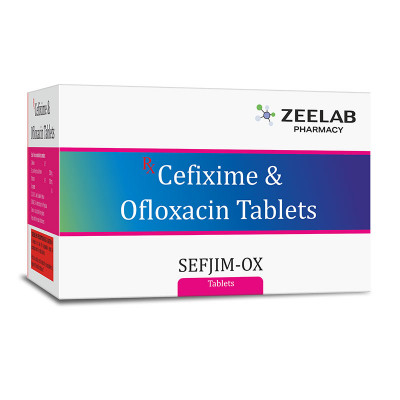
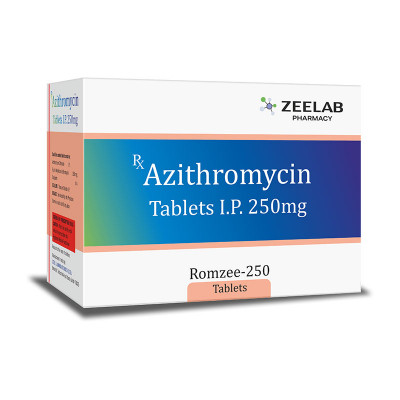
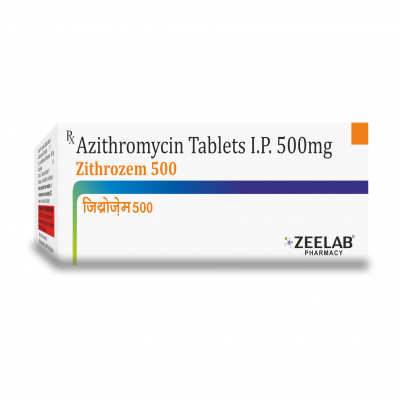
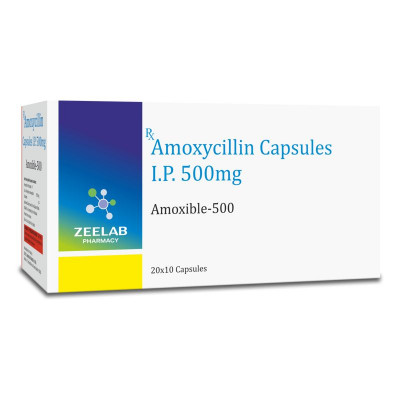

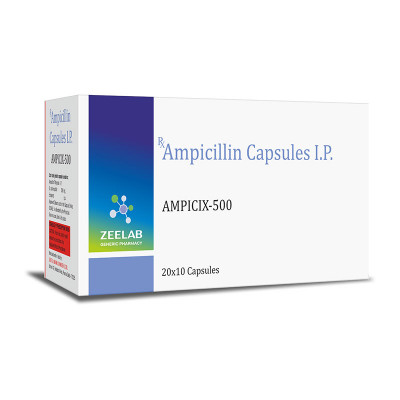
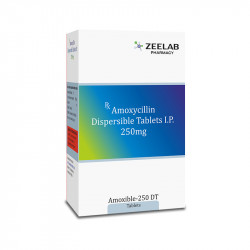
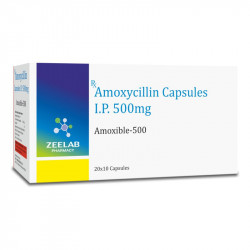
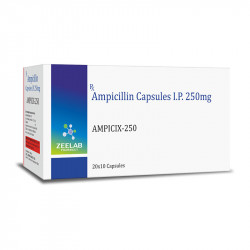
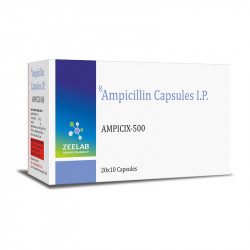
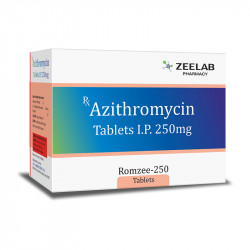
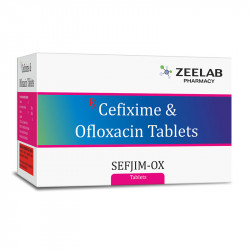
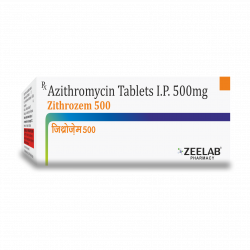


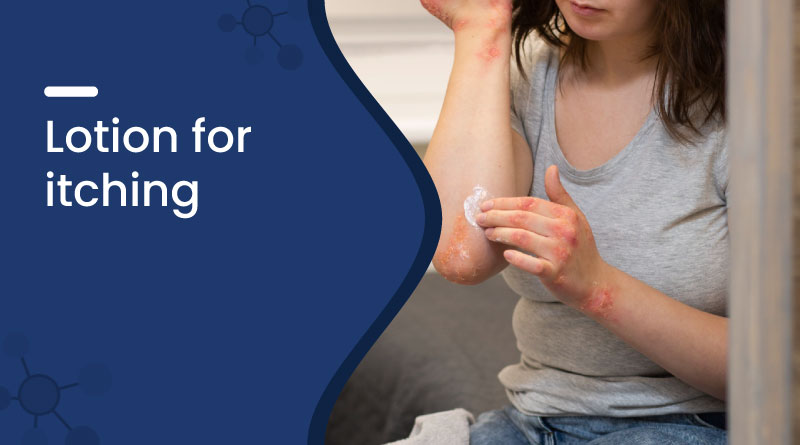
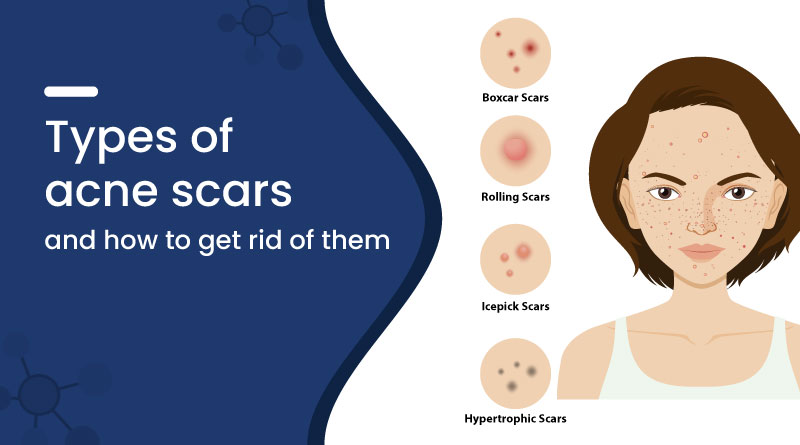




 Added!
Added!